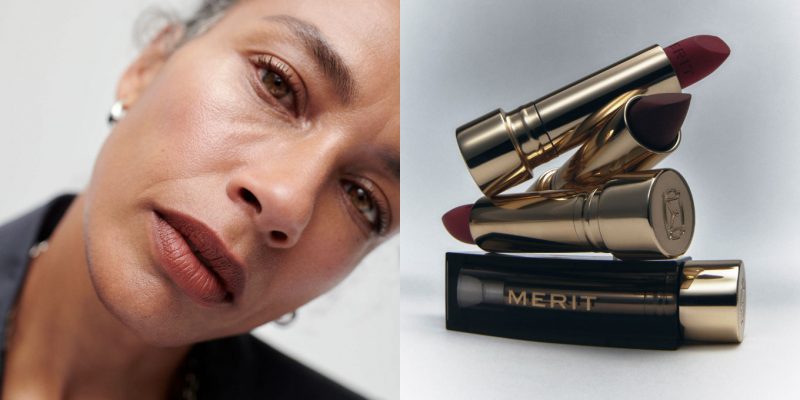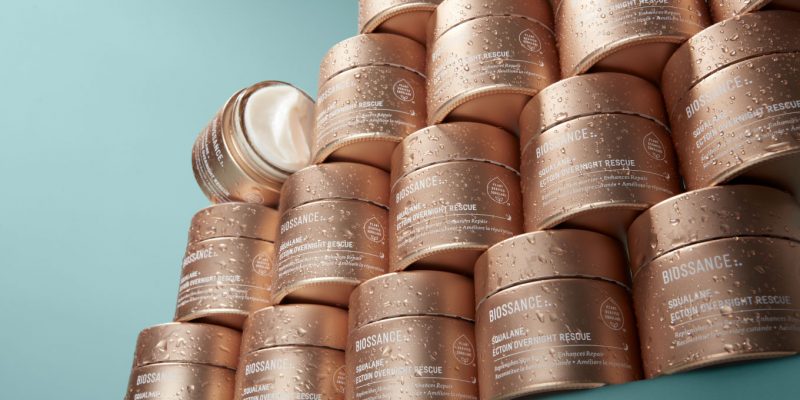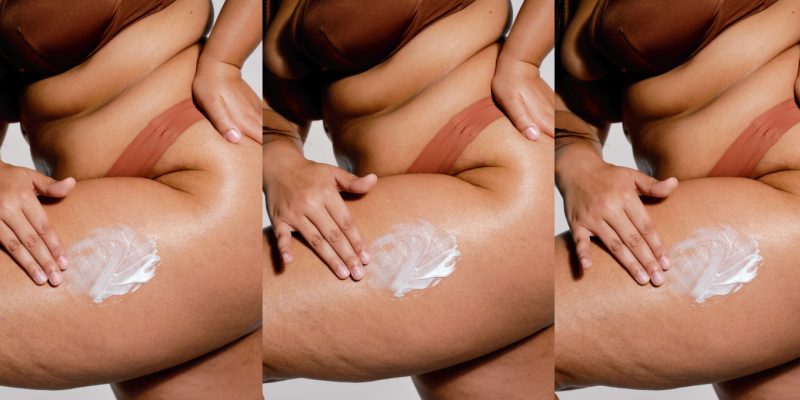Skincare
Meet Monieka Bos and Terry Chan—the Duo Behind Skinskool
Bos and Chan created Skinskool to bring data science to the world of beauty dupes—affordable alternatives to pricey products.
by : Eve Thomas- May 5th, 2022
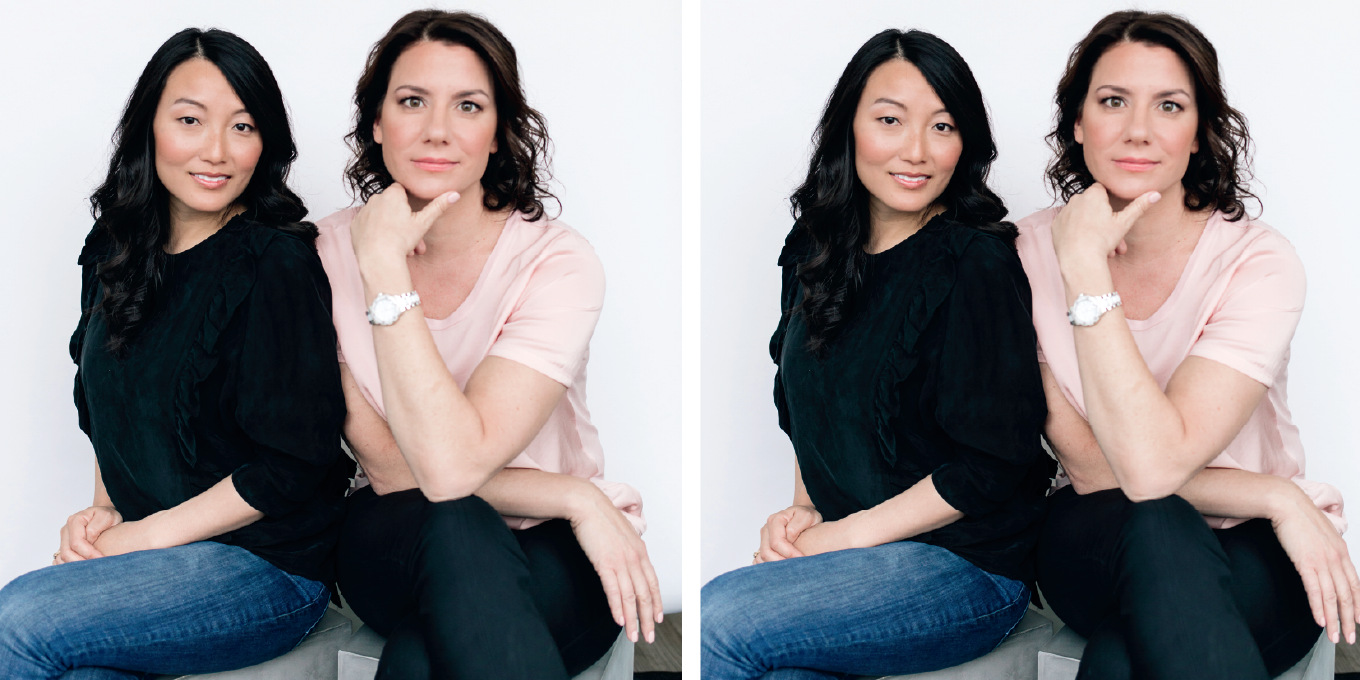
PHOTOGRAPHY, ANDREEA MUSCUREL; HAIR AND MAKEUP, KOKO + CO.
When Monieka Bos and Terry Chan went into business together, they combined their brains and beauty-industry secrets. In early 2020, the Canadian entrepreneurs (who met while working at a law firm in London, England) launched Skinskool, which they say is the “world’s first ingredient-based beauty-product-discovery algorithm.” Users simply enter the name of a cream, lotion or serum into the search tool, and it finds similar ones at different price points, with matches ranked by how close they are to the product entered. Thousands of new products are regularly added to the database, which currently has about 33,000 entries.
Five years ago, Chan was in search of a new skincare regimen, but a trip to the beauty counter in Amsterdam (where she now lives) left her empty-handed and overwhelmed by choice. She and Bos then spent two years working with a cosmetic chemist and a software engineer, developing an algorithm that goes beyond matching keywords from the INCI list (a list of product ingredients) and instead gets granular: grouping similar ingredients, standardizing names (for example, “carrageenan” is usually the same thing as “seaweed”) and more. The result is a bit of a thrill for any skincare obsessive with champagne taste and a beer budget.
Okay, first things first. What’s your most requested product right now?
Chan: “Our top search, very consistently, is for SkinCeuticals C E Ferulic serum. SkinCeuticals anything, actually.”
Bos: “Also Crème de la Mer.”
C: “And Augustinus Bader. All the super-expensive ones! Sometimes we’ll see a new product get to the top and we’re like, ‘What is this? We’ve never heard of it!’ And it turns out it went viral on TikTok.”
How has social media affected the skincare industry and your site?
C: “There are great things and not so great things about it. One great thing is you can get opinions on products instantly. You can instantly see what everyone’s saying about it. But at the same time there’s a lot of hype that gets built up because things spread so fast. And then, you know, what is the hype based on? So it’s a lot of noise as well.”
B: “There’s been this democratization of skincare—anybody can come up with a skincare brand and put it on social media and sell it. And you’ve got the added complication that the big brands work with big influencers, so there’s a potential lack of objectivity. That’s all fine. We’re not negative on the industry at all—that’s just how it works. But it’s a heck of a lot more information to have to wade through in a time when you already have so much stuff to consume. We’re offering some context.”
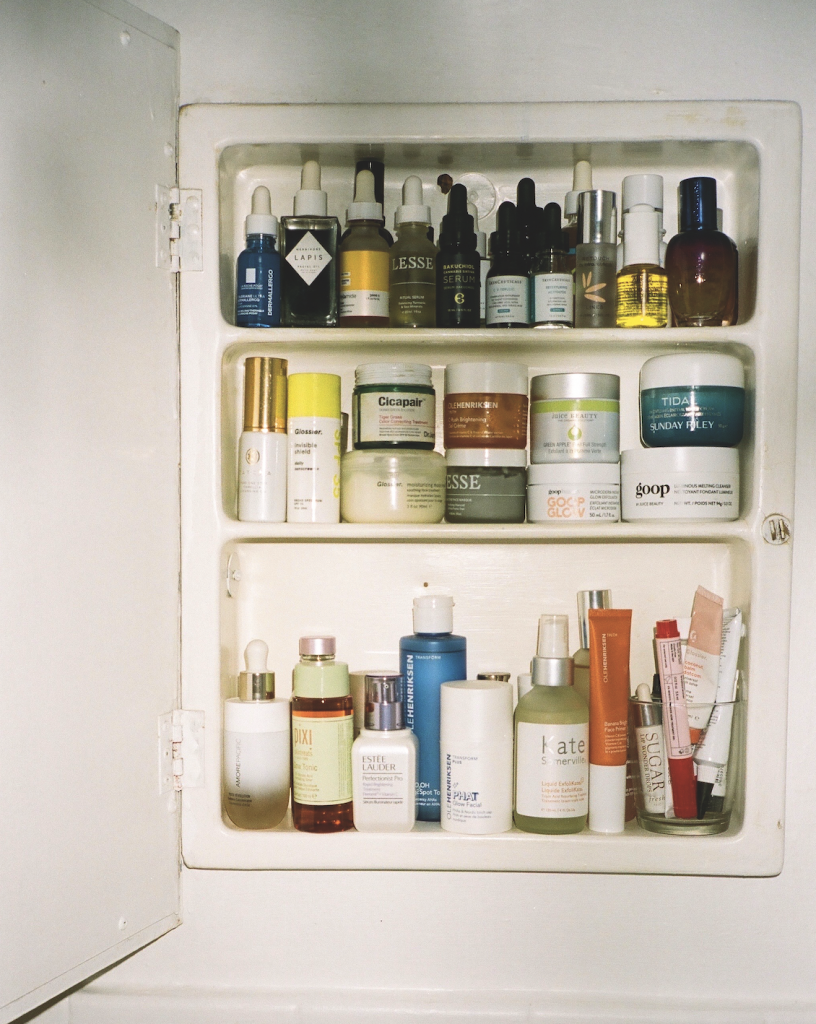 PHOTOGRAPHY, GABRIELLE LACASSE
PHOTOGRAPHY, GABRIELLE LACASSEI first heard about Skinskool on Poog [a podcast hosted by comedians Kate Berlant and Jacqueline Novak]. The hosts are really smart and skeptical but also embrace the possibility of personal transformation through products. Where do you fit between science and magic?
B: “That’s the very thing we grappled with in the beginning, because we’re also consumers, right? I was thinking about the psychology and how some brands really play that up, [like] Philosophy’s Hope in a Jar. Terry and I are very into the psychology and marketing and neuroscience of it all. Hope in a Jar is literally calling out [the psychology of beauty marketing]. And people still buy it.”
C: “We’re realists, but we can be swayed by marketing. I love nice packaging! On Skinskool, if you find a great comparable, then you kind of get the best of both worlds: You get to spend less money, yet [the product] is very similar in terms of ingredients, so you also feel the magic. And I think that’s why people love the concept of dupes, right? Because the magic from that super-special product trickles down.”
You have released your own product, Khyn & Grail oil. It happens to be a 100 percent dupe for a very pricey Vintner’s Daughter serum, but it costs significantly less. Are you worried about stepping on anyone’s toes?
B: “We’re just inspired by the best of what’s out there. And we put our product on the same playing field as everything else on Skinskool—we don’t manipulate the algorithm. At the end of the day, if you can afford La Mer and La Prairie, go for it! If there are no cheaper comparables, then that’s great—you’re using something that’s unique. But equally, I think that there’s an element here of inaccessible price points. If you can only afford [products at] accessible price points, it’s always in the back of your mind that other girls get to use the expensive stuff and it’s the better stuff. FOMO, right? And that’s not necessarily true. We get love letters from people every day, with feedback like ‘You’re giving me confidence.’ We’re making the beauty-buying experience really fantastic for those people again.”
C: “Also, even if we find something that has a super-high comparable—say it’s 95 percent—you should always try [a sample first]. Because there are limitations; we don’t necessarily know all the concentrations—the volumes of the ingredients. We’re working from the full INCI, and we’re trying to narrow down your choices based on exactly what you’re looking for.”
B: “And that’s not always just the price. We’ve had a lot of requests recently where people want high-end products but maybe they want them vegan or cruelty-free or without silicones. So that’s another way people use our system.”
Do you get excited when you find a close match?
C: “Yes! And sometimes it’s even a bit awkward when we find two 100 percent comparables and they’re either from the same parent company or, if not, very clearly from the same lab. The price difference is so big that it’s almost like we discovered something we shouldn’t have, you know? It’s like detective work, which I love.”
B: “It’s almost like we’re coming out with the biggest secret. I always liken it to Charlie and the Chocolate Factory. We’ve got the golden ticket! A 90 or 99 percent dupe? It’s like winning the lottery.
Newsletter
Join our mailing list for the latest and biggest in fashion trends, beauty, culture and celebrity.
Read Next
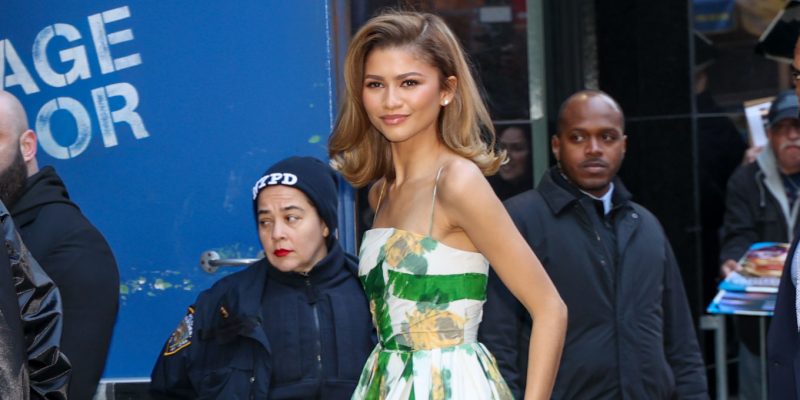
Fashion
Zendaya Welcomes Spring in a Retro Floral and Tulle Dress
Another day, another preppy tennis-core look.
by : Briannah Rivera- Apr 23rd, 2024
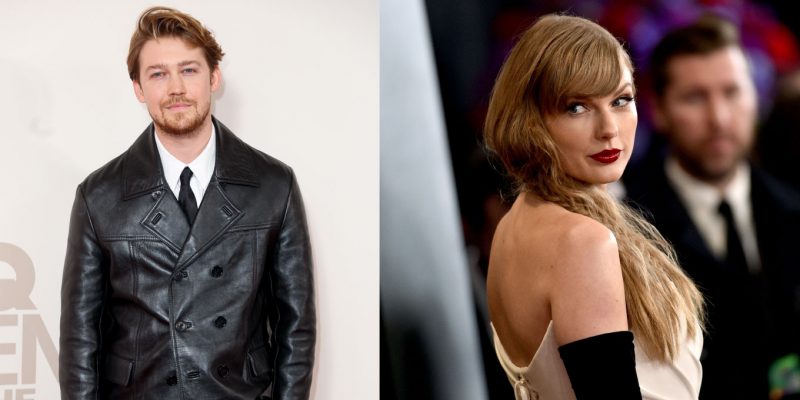
Culture
A Joe Alwyn Source Explains Why He Didn’t Want to Talk About Dating Taylor Swift
Following the release of The Tortured Poets Department, new insight about the British actor’s decision emerges.
by : Alyssa Bailey- Apr 23rd, 2024

Culture
ELLE Escapes: Savannah
Where to go, stay, eat and drink in “the Hostess City of the South.”
by : ELLE- Apr 15th, 2024

